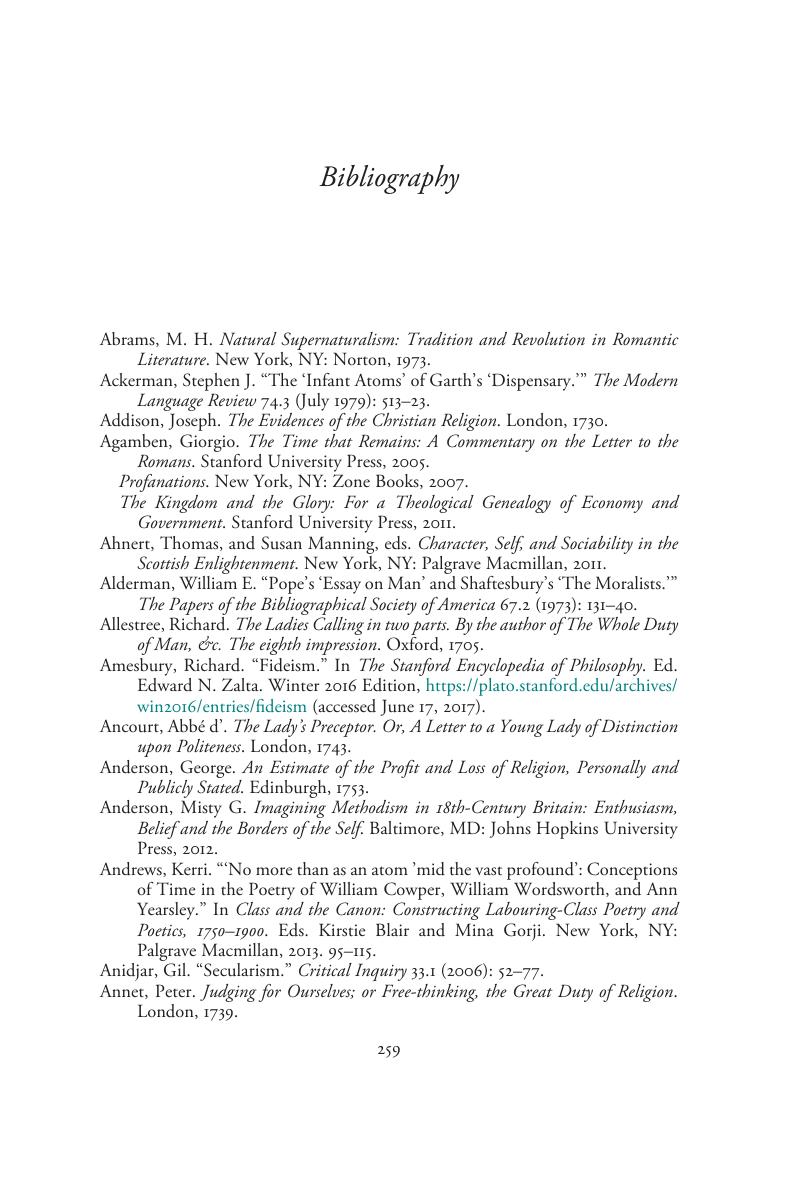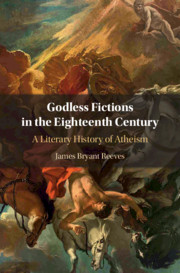Book contents
- Godless Fictions in the Eighteenth Century
- Godless Fictions in the Eighteenth Century
- Copyright page
- Contents
- Acknowledgments
- Introduction
- Chapter 1 A Complete System of Atheism: Jonathan Swift
- Chapter 2 Godless Dunces: Alexander Pope
- Chapter 3 The Limits of Self: Sarah Fielding
- Chapter 4 Gender and the Orient: Phebe Gibbes
- Chapter 5 Ecumenical Poetics: William Cowper
- Coda
- Notes
- Bibliography
- Index
- References
Bibliography
Published online by Cambridge University Press: 06 August 2020
- Godless Fictions in the Eighteenth Century
- Godless Fictions in the Eighteenth Century
- Copyright page
- Contents
- Acknowledgments
- Introduction
- Chapter 1 A Complete System of Atheism: Jonathan Swift
- Chapter 2 Godless Dunces: Alexander Pope
- Chapter 3 The Limits of Self: Sarah Fielding
- Chapter 4 Gender and the Orient: Phebe Gibbes
- Chapter 5 Ecumenical Poetics: William Cowper
- Coda
- Notes
- Bibliography
- Index
- References
Summary

- Type
- Chapter
- Information
- Godless Fictions in the Eighteenth CenturyA Literary History of Atheism, pp. 259 - 275Publisher: Cambridge University PressPrint publication year: 2020



